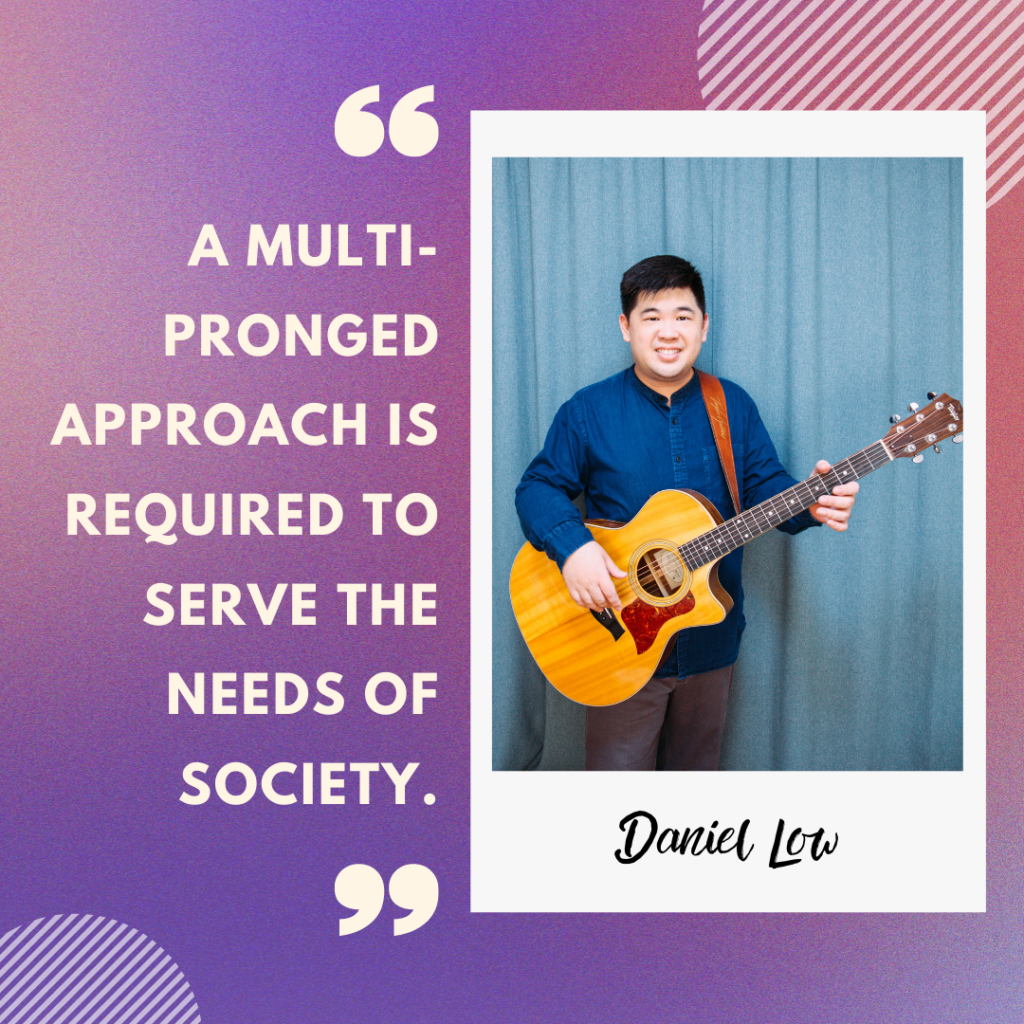
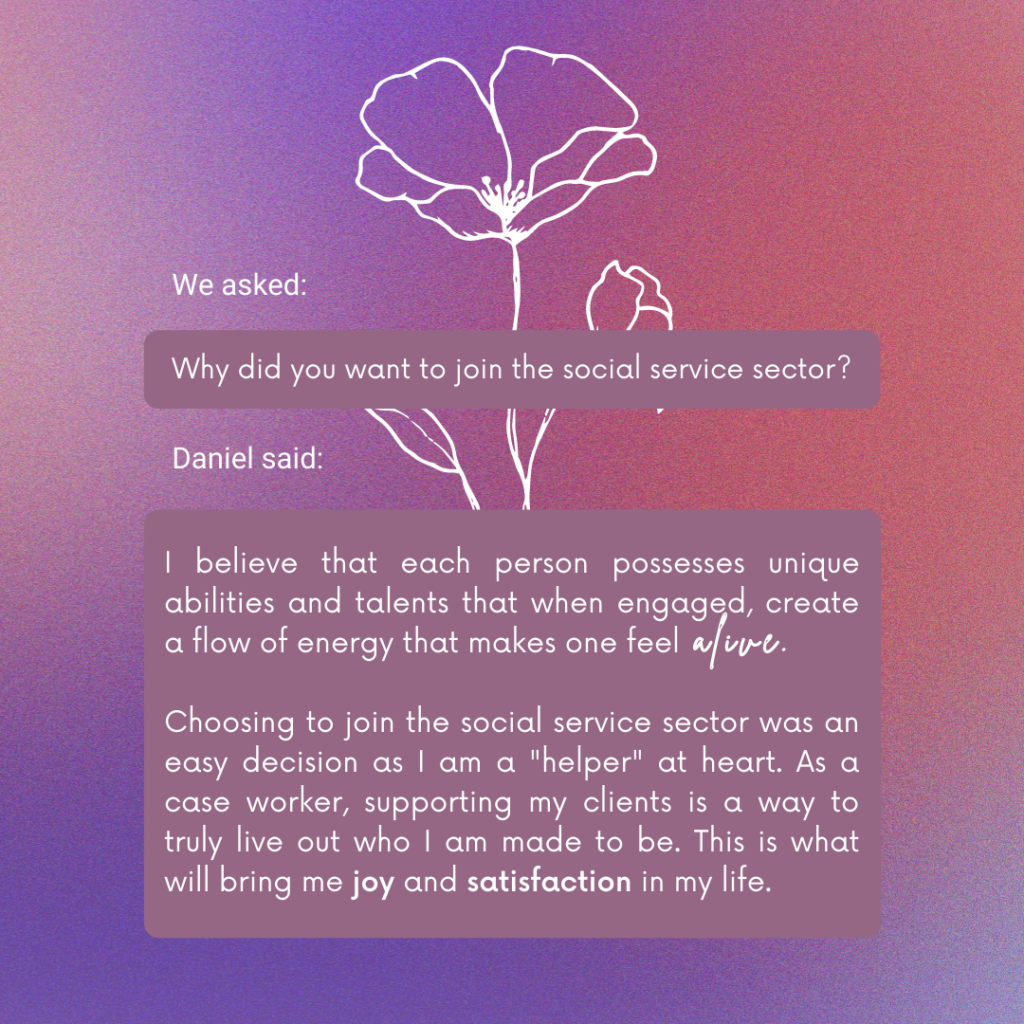
Burnout can happen to anyone – not only in the social service sector. Daniel, a HCSA Highpoint case worker, experienced burnout during his previous stint in the private sector.
Having been in the private sector for 12 years, transitioning into the role of a case worker won’t be easy – but Daniel remains optimistic. He draws constructive energy from the connections he has with clients, colleagues, or just being with a team with a genuine desire to serve our society.
“Social and case workers play an important part in serving vulnerable people’s practical needs. Complete healing involves the fulfilment of other needs like earning a living, housing, and healthcare. In the same way that ‘it takes a village to raise a child’, a multi-pronged approach is required to serve the needs of society.”
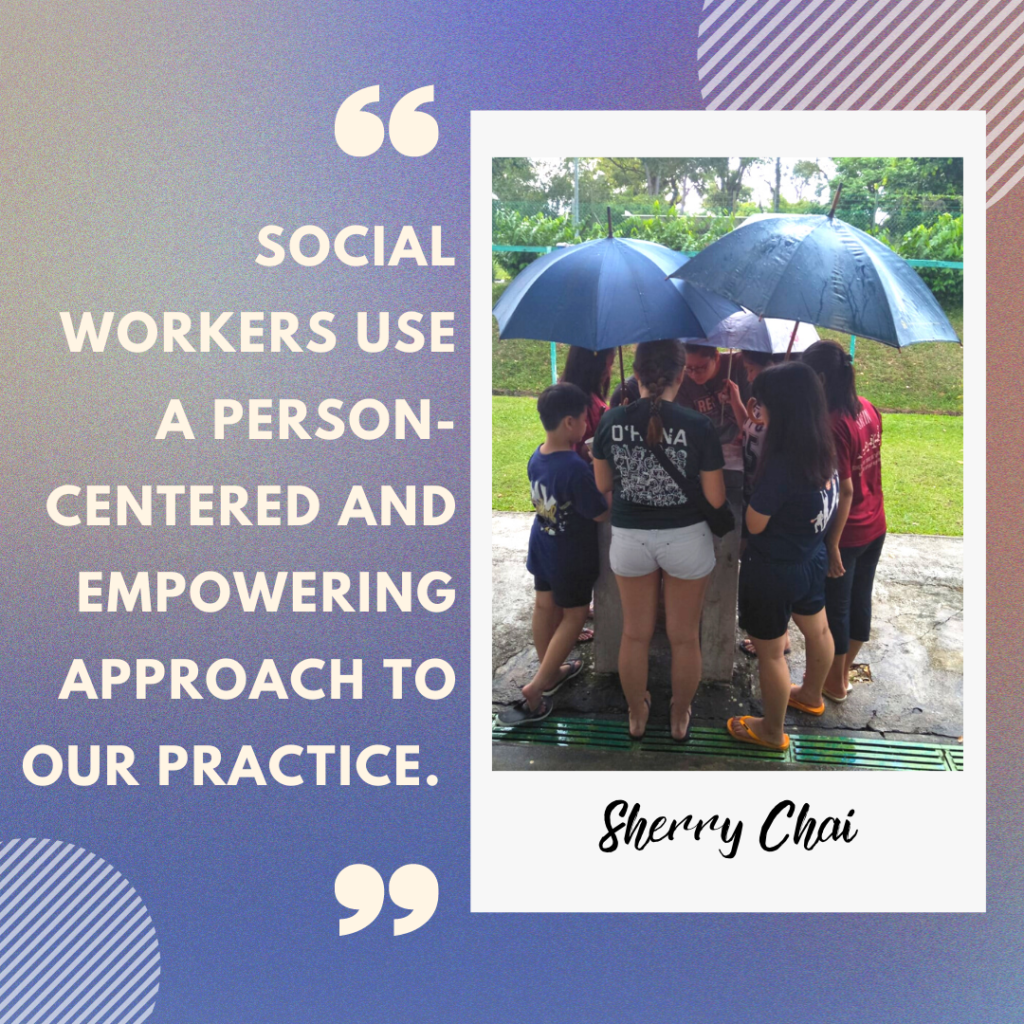
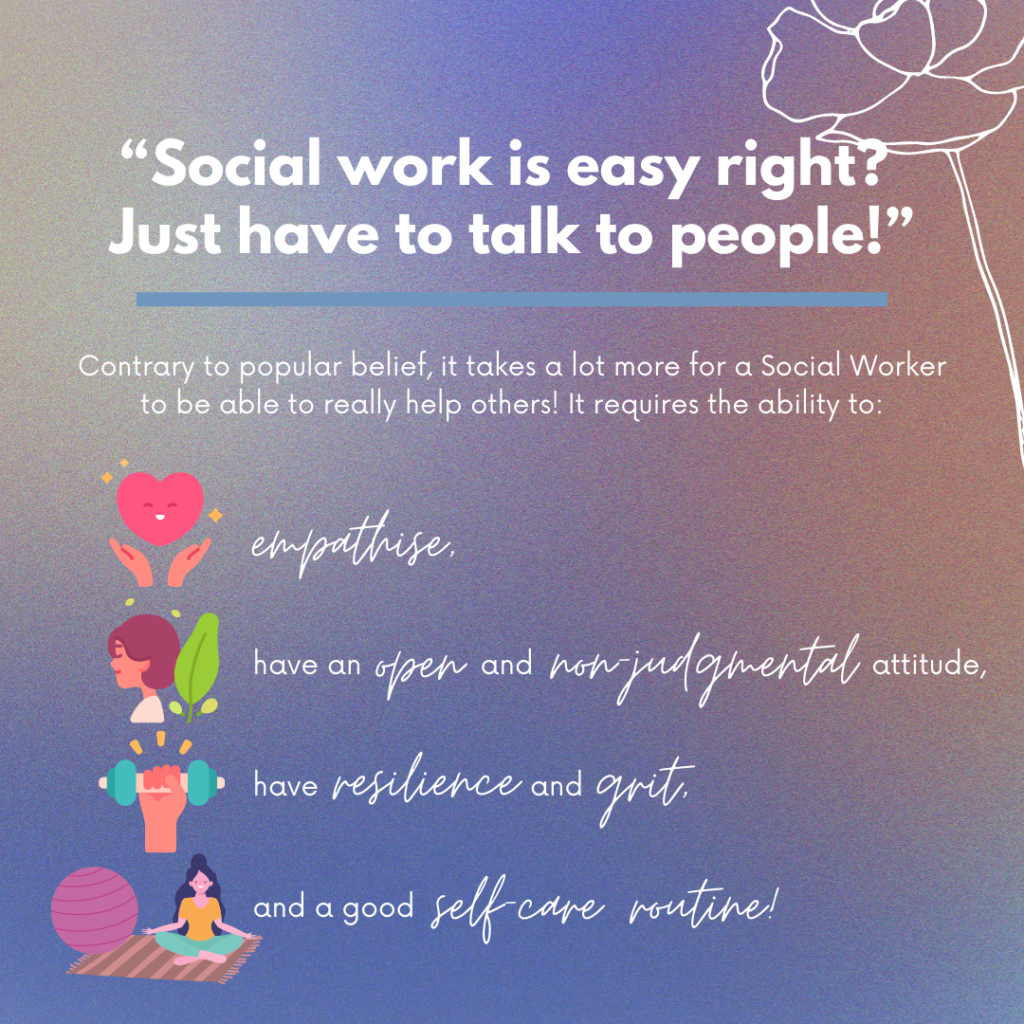
Some people may find hope in helping others find it themselves. Sherry, a Therapeutic Case Worker at Dayspring Residential Treatment Centre, recognises the importance of relationships as a vehicle for change and equity.
Sherry and her colleagues work to empower their clients to be socially responsible and self-reliant, which is a more sustainable approach for their wellbeing in the long run. Though the fruits of their labour might not be immediately apparent, they’ll continue to plant the seeds of empowerment and hope. 🌱
“We assess potential clients and allocate resources based on their needs, such as funding or referral to relevant professionals. Social workers address the client’s concerns while facilitating healing and growth, in order to restore the clients’ relationships with themselves, family, and community.”
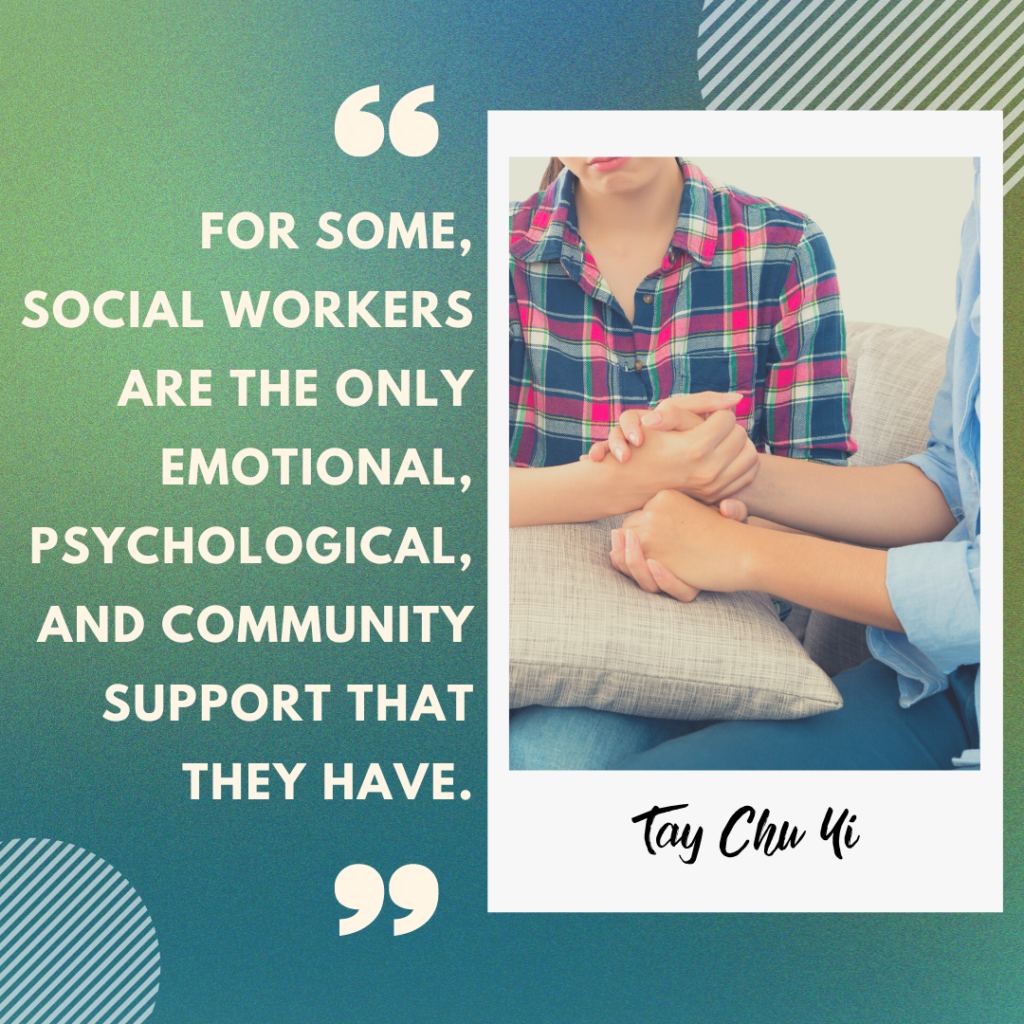
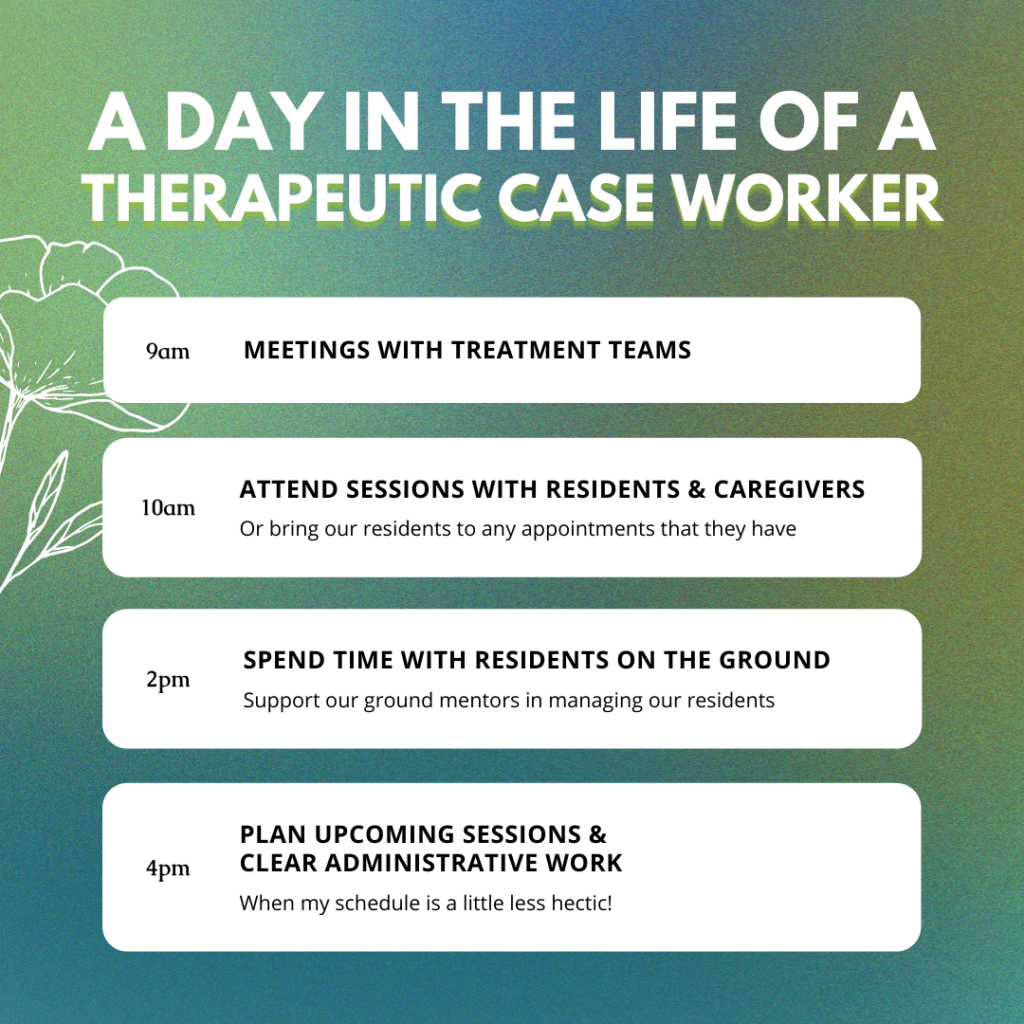
As cliché as it may be, Chu Yi joined Dayspring Residential Treatment Centre as a Therapeutic Case Worker because of her desire to support beneficiaries through their traumatic past.
Being a social service professional isn’t a walk in the park. What keeps Chu Yi turning up for work every day is the knowledge that her colleagues are there to tackle difficulties together with her. In turn, she honours the people she works with by recognising her sense of responsibility.
“It’s important to recognise that social workers are humans, first. Social workers are amazing but they have limited bandwidth. In the essentiality of their roles, honouring their humanity should not merely be a singular celebratory day, but a close examination and addressing of the systemic and sociocultural factors that result in common issues across the sector, such as burnout.”
